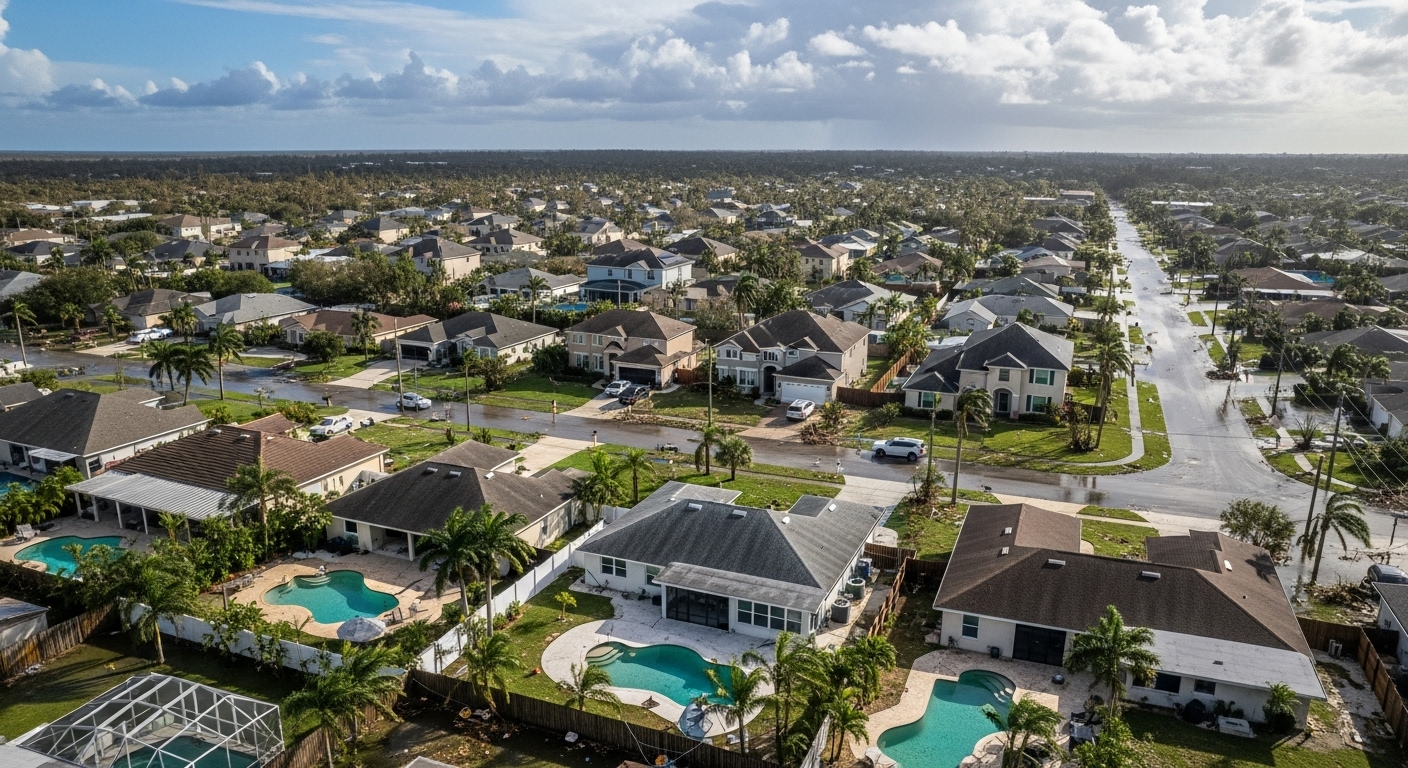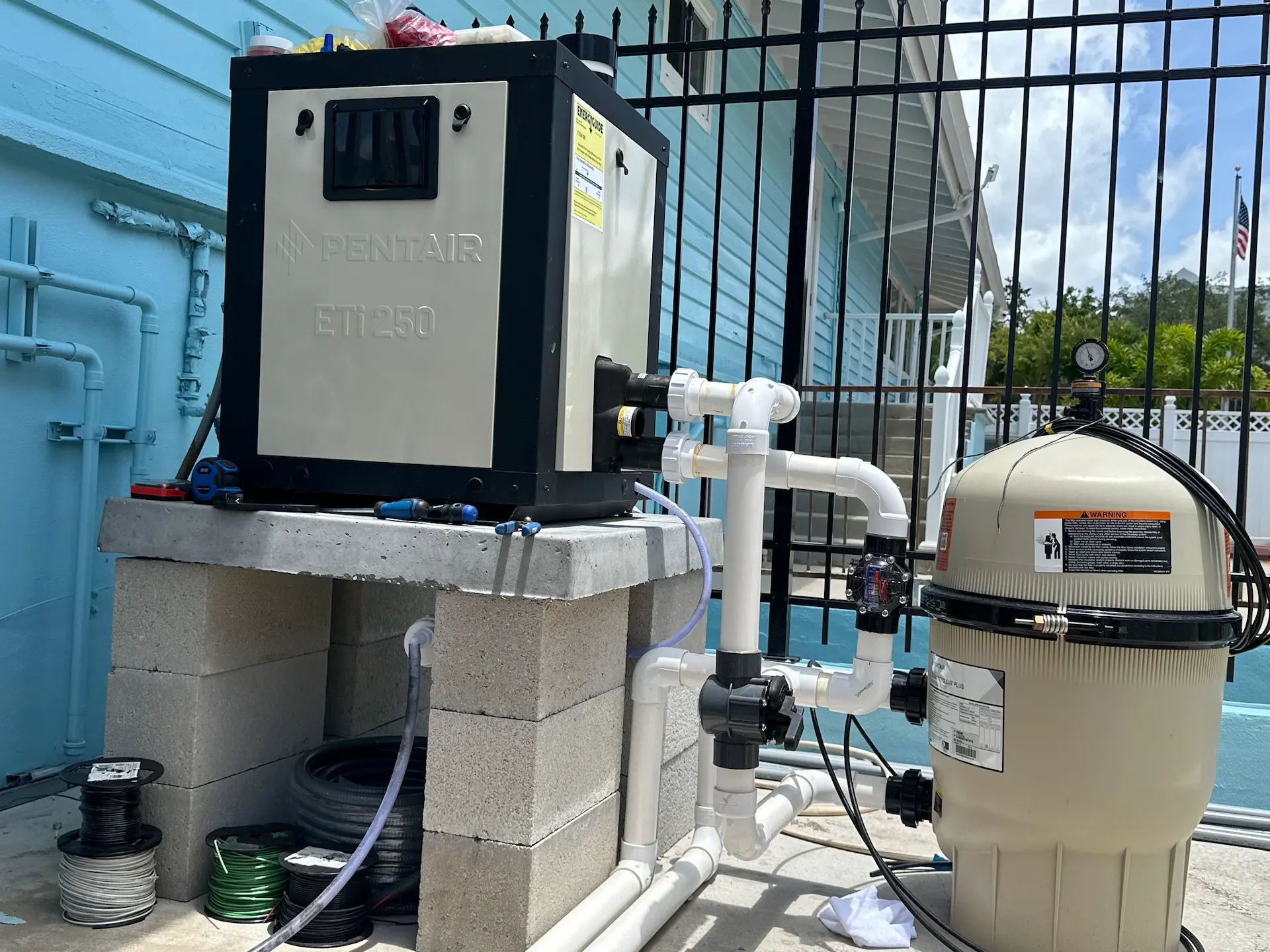Maximizing Buyer Credits Through a Thorough Swimming Pool Inspection
Our certified inspectors assess swimming pools and spas for leaks, deck condition, and overall safety.


Why Pool Inspection Matters for Home Buyers
Buying a home with a swimming pool can be an exciting prospect, offering a private oasis right in your backyard. However, pools come with their own set of responsibilities and potential issues. This article explores how a comprehensive pool inspection can help homebuyers secure credits for necessary repairs, ensuring peace of mind and financial savings.
What is a Swimming Pool Inspection?
A pool inspection involves a detailed evaluation of the pool's condition, including its structure, equipment, and safety features. A certified pool inspector will assess various components to ensure the pool is in good working order and identify any potential problems that might need repair.
Why is Pool Inspection Important?
A pool inspection is crucial for identifying issues that could lead to costly repairs down the line. By detecting problems early, homebuyers can negotiate for repair credits with the seller, ensuring the pool and spa are safe and functional without unexpected expenses.
What Does a Pool Inspection Cover?
Pool Structure and Surface
Inspectors check for cracks, discoloration, and wear on the pool's surface, which could indicate structural issues. The pool's shell, coping, and tile work are evaluated for integrity and proper installation. It is critical that an advanced leak detection on the pool is performed.
Pool Equipment
The functionality of pumps, heaters, filters, and other mechanical components is thoroughly assessed. Inspectors ensure these elements are working efficiently and are free from leaks or other malfunctions.
Safety Features
Safety is paramount in pool inspections. Inspectors verify the presence and condition of fences, gates, alarms, and other safety features. They verify that compliant drain covers are in place to prevent vacuum entrapment risks. They also check for properly installed diving boards and slides.
How Can a Pool Inspection Save You Money?
Identifying Necessary Repairs
A detailed pool inspection report can highlight necessary repairs, allowing buyers to negotiate credits or price reductions with the seller. This can cover anything from minor fixes to major overhauls, such as resurfacing the pool or replacing outdated equipment.
Preventing Costly Repairs
Early detection of issues prevents minor problems from becoming major repairs. For example, catching a small leak early can save thousands in water damage and repair costs.

What Are Common Pool Problems Detected During Inspections?
Leaks and Cracks
Leaks can be a significant issue in pools. Inspectors use specialized equipment to detect leaks in the pool's structure, plumbing, and equipment. Cracks in the pool shell or decking can also indicate deeper structural issues.
Equipment Malfunctions
Pumps, heaters, and filters must be in good working order. Inspectors check for signs of wear, leaks, and proper operation. Malfunctioning equipment can lead to inefficient pool operation and increased utility bills.
Safety Concerns
Inspectors ensure that all safety features are up to code, including fences, gates, and alarms. They also check for electrical issues, such as properly grounded equipment and functioning ground fault circuit interrupters (GFCIs).
How Has Advanced Leak Detection Equipment Changed the Industry?
State-of-the-Art Technology
Advanced leak detection equipment, such as electronic listening devices and pressure testing tools, has revolutionized the pool inspection industry. These tools allow inspectors to pinpoint leaks with high accuracy, reducing the need for invasive procedures.
Non-Invasive Methods
Modern leak detection methods are less disruptive than traditional techniques. Highly sensitive electronic listening devices and underwater cameras equipped with dye injectors can locate leaks without draining the pool, preserving water and minimizing inconvenience.
Improved Accuracy
Advanced equipment provides more accurate results, ensuring that all issues are identified and addressed. This leads to better repair outcomes and longer-lasting solutions.
The Role of a Certified Pool Inspector
Expertise and Training
Certified Pool Inspectors have the expertise and training to identify potential issues that untrained eyes might miss. Their thorough inspections ensure that all aspects of the pool are evaluated, from the structure to the equipment.
Comprehensive Reports
Inspectors provide detailed reports outlining their findings. These reports include recommendations for repairs and maintenance, giving buyers a clear understanding of the pool's condition and any necessary actions.
How to Prepare for a Pool Inspection
Gathering Documentation
Before the inspection, gather any documentation related to the pool, such as maintenance records, warranties, and previous inspection reports. This information can help the inspector understand the pool's history and identify recurring issues.
Cleaning and Maintenance
Ensure the pool is clean and well-maintained before the inspection. A clean pool allows the inspector to see all surfaces clearly and assess the condition accurately.

What to Expect During a Pool Inspection
Visual Inspection
The inspector will perform a visual inspection of the pool and its surroundings, checking for visible signs of damage or wear.
Advanced Leak Detection
A comprehensive leak detection of the entire pool, spa, and all related plumbing that utilizes advanced sonic technology and pressuring testing equipment in order to pinpoint leaks that typically go undetected with traditional leak detection means.
Equipment Testing
All pool equipment, including pumps, salt chlorine generators, heaters, and filters, will be tested for proper operation. The inspector will check for leaks, malfunctions, and efficiency.
Safety Feature Assessment
Safety features, such as drain covers, fences, gates, and alarms, will be evaluated to ensure they meet local regulations and standards.
Understanding the Inspection Report
Key Findings
The inspection report will highlight key findings, including any issues that need immediate attention and recommendations for future maintenance.
Cost Estimates
The report may include cost estimates for necessary repairs, helping buyers negotiate credits with the seller.
Maintenance Tips
Inspectors often provide maintenance tips to keep the pool in good condition, extending its lifespan and ensuring a safe swimming environment.
How to Negotiate Buyer Credits
Presenting the Report
Present the inspection report to the seller and discuss the findings. Highlight the necessary repairs and their estimated costs.
Requesting Credits
Request credits for the cost of repairs or negotiate a price reduction to cover these expenses. This can be a significant financial benefit, especially if major repairs are needed.
Bullet Point Summary
- Importance of Pool Inspection: Ensures safety and functionality, identifies potential issues.
- Key Inspection Areas: Pool structure, equipment, safety features.
- Common Issues Detected: Leaks, cracks, equipment malfunctions, safety concerns.
- Advanced Leak Detection: Modern tools for accurate, non-invasive leak detection.
- Role of Certified Inspectors: Expertise, comprehensive reports, maintenance tips.
- Preparation for Inspection: Gather documentation, clean and maintain the pool.
- Inspection Process: Visual inspection, equipment testing, safety assessment.
- Understanding the Report: Key findings, cost estimates, maintenance tips.
- Negotiating Credits: Present the report, request credits or price reduction.
Conclusion
A thorough pool inspection is essential for homebuyers to ensure they are making a sound investment. By identifying potential issues and negotiating credits, buyers can save money and enjoy their new pool with peace of mind. At Your Tropical Oasis, we provide expert Certified Pool Inspection services in the Tampa Bay Area, helping you make informed decisions when purchasing a home with a pool. Contact us today for a professional inspection and enjoy the benefits of a safe and well-maintained pool.
Read our latest blog & articles
.webp)






.jpeg)
.webp)
